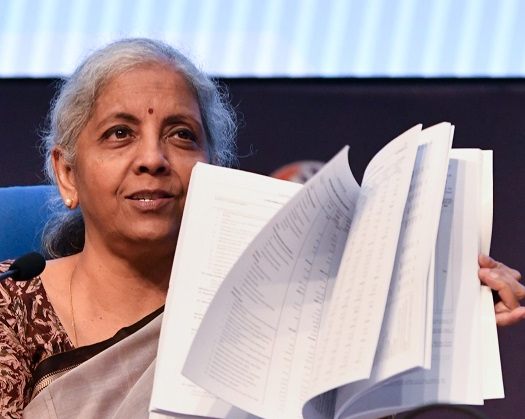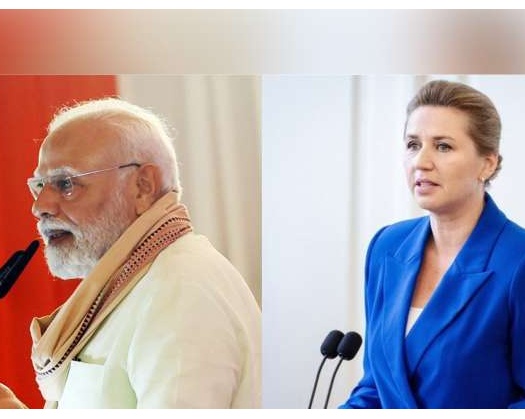Muscat: The response from the Indian expatriate community to the inaugural budget unveiled by the Narendra Modi-led administration on Tuesday was marked by a blend of reactions.
Opinions varied widely, with a significant segment expressing disappointment that the budget did not address the longstanding benefits and preferences granted to Non-Resident Indians (NRIs). However, provisions were introduced regarding employment, consumption incentives, and support for rural and Micro, Small, and Medium Enterprises (MSME) sectors, which were viewed positively as potential catalysts for NRI businessmen. The Budget, presented by Finance Minister Nirmala Sitharaman, ignited a spectrum of viewpoints among NRIs.
R. Madhusoodanan, a distinguished financial analyst based in Muscat, voiced his disenchantment with the budget during a conversation with The Times of Oman.
He conveyed, "The Indian expatriate community harbored high expectations from the government, anticipating substantial reforms and measures tailored to address the unique challenges faced by the expatriate Indian community. With Indian diaspora remittances topping INR one lakh crores (US$1.25 billion) in the preceding year—standing as the world's highest—expectations were considerably justified. Among the primary demands were comprehensive social security provisions and a rationalization of exorbitant airfares. Nevertheless, the Union Budget fell short of these expectations, leaving many expatriates somewhat dissatisfied."
Madhusoodanan, who had a background at the State Bank of India, acknowledged the pro-development stance of the budget, focusing on critical sectors such as agriculture, employment generation, the development of youth, and both urban and rural infrastructure.
He noted, "The agricultural sector, recognized as the cornerstone of India’s economy, is poised to benefit from a range of new measures designed to enhance productivity and sustainability. Furthermore, the reduction in customs duties on gold, silver, platinum, and mobile phones was warmly welcomed by industry leaders and the general populace, especially NRIs. Given that a considerable portion of India’s foreign exchange is allocated to the importation of oil, gold, and electronic items, this maneuver could lead to an increase in imports, potentially affecting India’s trade balance."
He also pointed to the “abolishment of the Angel Tax” as a significant victory for startups and entrepreneurs, and mentioned that a 5% reduction in corporate tax for foreign entities is anticipated to attract greater investments to India.
He stated, “The budget provided some relief for the salaried class and pensioners through enhanced exemptions on personal income tax. However, others will be facing adjustments to their tax brackets, with no relief offered for those adhering to the older tax regime. The basic exemption limits for both the old and new regimes remain the same. The financial markets reacted negatively to the budget, primarily due to the upward revision in the Securities Transaction Tax (STT) and the modifications in short-term and long-term capital gains tax. Additionally, the Indian rupee has depreciated against the US dollar, signaling that the markets may require time to stabilize as they assimilate these recent policy changes."
Piyush Jain, the Group Chief Financial Officer of Al Tasnim Enterprises LLC, has also contributed his insights to the Times of Oman regarding the first budget presented by the government of Modi 3.0. Jain states, "The inaugural budget of the Modi 3.0 administration has sent a clear message regarding its priorities, including employment and skill development, an emphasis on consumption, support for rural areas and Micro, Small and Medium Enterprises (MSMEs), alongside a focus on digitalization and fiscal discipline."
In discussing the implications of the budget for Non-Resident Indians (NRI), Jain outlines two primary perspectives. For Non-Resident Indian business owners and large conglomerates, the budget is expected to further stimulate investments in India, opening new avenues within MSMEs, agriculture, and skill enhancement sectors. Jain advises these business owners to seek opportunities within these sectors to drive growth, not limited to traditional manufacturing, automobile, semiconductor, electric vehicle, and defense industries.
However, Jain points to some areas of concern for the workforce and salaried Non-Resident Indians. "The budget has not heralded significant positive news, as it proposes an increase in taxes on certain capital gains for non-residents, particularly listed equities. The long-term capital gains tax (LTCG) has been raised to 12.5% from 10%, with the short-term capital gains tax (STCG) increasing to 20% from 15%. Furthermore, the withdrawal of indexation benefits on properties may lead to substantial tax liabilities upon sale. Although the overall tax rate has been reduced from 20% to 12.5%, the limit for Non-Taxable Long-Term Capital Gains (INR 1.25 lakh) has increased from INR 1 lakh, offering some respite for taxpayers," Jain explained.
P. Samir, another Non-Resident Indian residing in Sohar, has voiced his support for the budget's emphasis on job creation and skill development programs aimed at benefiting the youth. "These initiatives are carefully crafted to uphold fiscal responsibility while fostering digital and infrastructural development. The budget's focus on manufacturing capacity is particularly welcomed," he remarked.
Additionally, Samir applauded the reduction in gold duty from 15% to 6%, deeming it as a favorable development for Non-Resident Indian families. "This reduction in duties on mobile phones, chargers, and silverware is expected to boost consumer demand and encourage domestic manufacturers by lowering their production costs," he noted.









